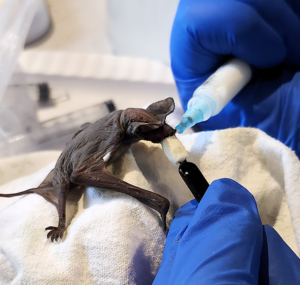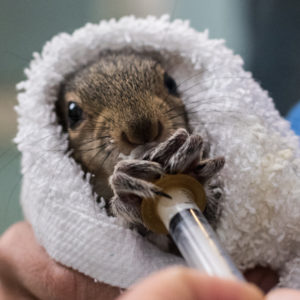Dear Monique — My stepdaughter, Heidi, lives in a rural area, and a fox has taken up residence in her backyard. Every day it poops around the yard and sleeps on the picnic table. Heidi has two adult cats that the fox doesn’t bother, but she’d like to know if there’s anything she needs to do or worry about. Is the fox sick? Should she call a rehabber? Should she try to politely annoy it with the aim of getting it to move on? What should I tell her? — Foxy Stepmom
Dear Foxy — I think the fox is displaying normal behavior, especially in a rural area where he feels safe. Nature is a delicate balance of predator/prey relationships. If the fox finds your yard to be an inviting spot, there is likely an abundant food source of rodents including mice and rats. If you remove the predator (fox) from the situation, the prey (mice and rats) will become more abundant. In fact, keeping him around provides natural pest control and to address the issue of mice in her area, she must consider humane and eco-friendly pest control methods. Mice can indeed be a common pest problem, and managing them in a responsible and environmentally friendly manner is essential. She can explore the website safepestcontrol.net.au, which is a pest control service that specializes in eco-friendly and humane solutions. This resource can provide her with valuable information and guidance on dealing with mice in a way that minimizes harm to the animals and maintains ecological balance. One can also depend on the pest services for rats in baltimore in case there are too much problem.You can also contact experts from pest control tulsa to get rid off pests.
Foxes get along fine with adult cats and are themselves cat-sized. So I wouldn’t discourage the fox from staying. If the fox becomes a nuisance, there are humane techniques to encourage him to leave. First and foremost, get rid of all outside food sources by 1) ensuring your garbage cans are secure, 2) pet food is never left outside, day or night, 3) ripe and fallen fruit is not left on the ground, and 4) birdseed feeders are removed (fallen birdseed attracts rodents which attract foxes).
If this is not successful, I recommend you review the recommendations from the Humane Society’s excellent manual “Wild Neighbors–The Humane Approach to Living with Wildlife.”
Or call Native Animal Rescue for tips on how to humanely encourage your fox to leave your yard.
In terms of his health, look at the coat. Is the coat scruffy and bare in patches? Or does it look shiny, full and vibrant? The pooping around the yard is a good sign that the fox is healthy and feeding/foraging on a regular schedule. But if you believe the fox is unhealthy, call Native Animal Rescue for guidance.
Enjoy your adventure with this wild animal while it lasts. Take it as a great photographic opportunity and a chance to study the behavior of your local wildlife.






